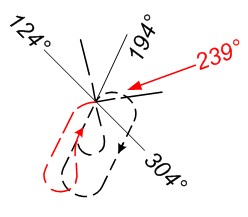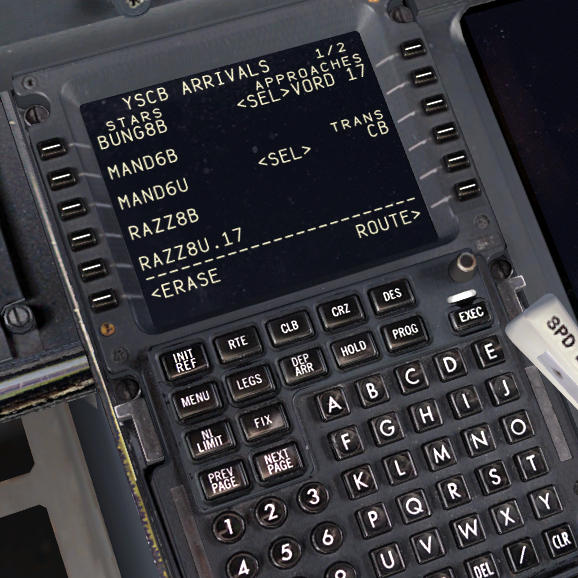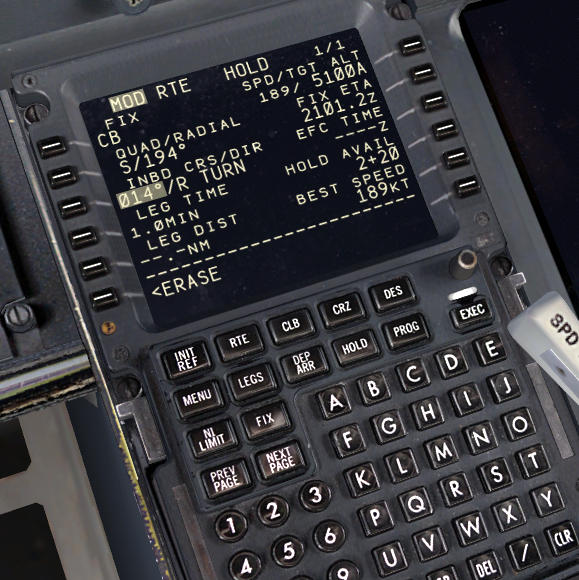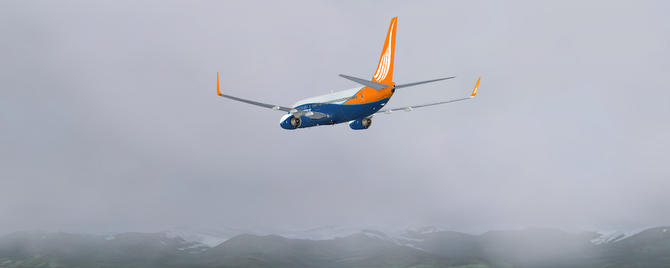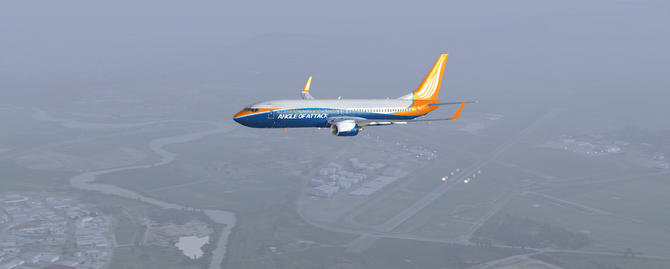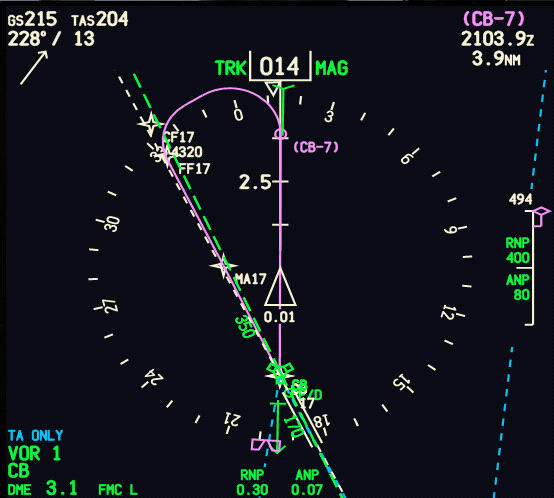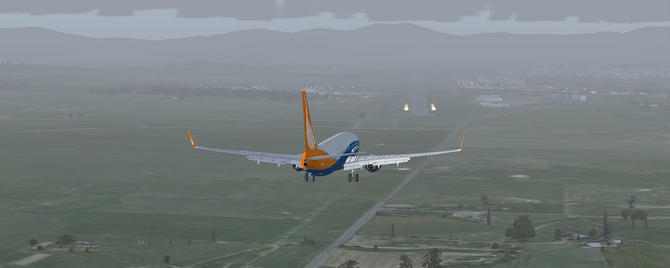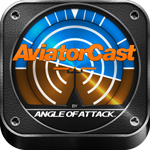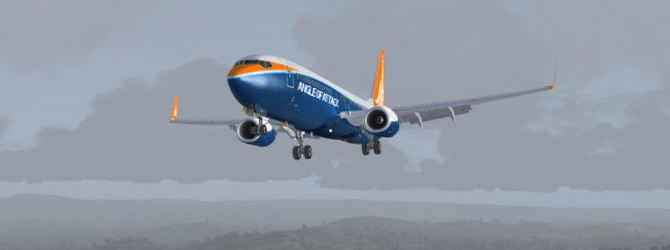
Test your Non-Precision Approach Skills with a low-viz VOR-DME approach into Canberra, Australia!
The name of the game here is taking a break from the ILS and LAND 3 functionality! This is a scenario outline and walk-through of a VOR-DME approach with holding. It’s assumed that you’re pretty familiar with the 737NGX and have accumulated a reasonable amount of hours on it.
Scenario
You’re flying “Envoy 653” – carrying political VIP’s on a routine 30 minute early morning flight from Sydney to Canberra, Australia’s capital and seat of parliament. It’s winter time and Canberra’s ATIS is reporting visibility reduced to 5 km (2.7 nm) in mist and to expect the 35 ILS approach.
The Challenge
Prior to top of descent you will be advised that Canberra’s Instrument Landing System has become unavailable and that the airport visibility is still reduced. This will mean quickly replanning for a non-precision IMC approach. Luckily, you’re in the hot-seat. Up for the challenge? – Read on.
Flight Briefing
Fuel and flight planning will be simplified to just the basics to keep the focus on the core part of the exercise. You can add more realism detail yourself if desired! For the route overview, you may wish to refer to SkyVector – enter the Flight Plan YSSY WOL NWA YSCB. This will give you:
Route Sydney (YSSY) to Canberra (YSCB) via Wollongong NDB (WOL) and Nowra VOR (NWA) YSSY RWY 16L DCT WOL : Track 195°M 42 nm WOL DCT NWA : Track 196°M 27 nm NWA DCT YSCB : Track 239°M 69 nm
Flight bag For the Canberra arrival you will need: Aerodrome Chart Page 1, ILS-Y RWY 35, and VOR RWY 17 approaches – available from Airservices Australia or alternatively via Charts.Aero.
Flight Preparation
Start the Simulator and load up the 737NGX at Sydney (YSSY). Select August (winter in the southern hemisphere), Clear weather, 6 am Local time, “PARKING 11 — RAMP GA LARGE” (or similar) which puts you at the VIP apron on the north-east of the airport. Boarding is 6.10 am local time with push-back set for 6:20 am – so let’s get moving.
Setup this Payload
Fuel 1/3 = 15200 lbs, Pax 10 First, 0 Econ, Cargo Fwd 1200
Enter this FMC Route
From YSSY – departing from 16L (Or use 25 for an expedited departure) To YSCB – arriving on the 35 ILS via MENZI LEGS - VIA WOL, VIA NWA
Clear any discontinuities end execute the route.
FMC Performance
Cruise Altitude FL240 Select Takeoff-2 For Flaps 5 this gives me V1 of 119, VR of 119, V2 of 130, Trim 5.11.
Navaids for the trip
SY VOR-DME 112.1, WOL NDB 239, NWA NDB 359, CB 35 ILS 109.5, CB VOR-DME 116.7
Weather For this exercise, you can just use some simple custom weather to suit the scenario. Go to User Defined Weather… Customize, then press Advanced Weather… – set Cloud to 6/8 Cumulus between 3,500 and 10,000; set Visibility to 5 nm (8 km) between 0 and 8,000. Set the wind to 180° at 8 kts to set the runways for this scenario.
The Flight
Departure, Climb and Cruise
OK we’re all set. I won’t go into any details on this routine segment – board the passengers, startup, taxi and takeoff from Sydney 16L, climb on track to Wollongong. Top of climb should be a few miles prior to WOL. After that the aircraft will continue on the same heading to NWA.
Descent Preparation – commence this prior to crossing overhead Nowra
- Review the Canberra Airport Diagram.
- Confirm the Landing Pressurization is set for Canberra’s Elevation of 1886 – set 1900.
- Confirm no Recall items are current
- Set Autobrake to 2
- On the CDU select the Flaps 30 approach; Vref is 127 + 5 = 132 kt approach speed
Check the Canberra ATIS – for this exercise, assume the ATIS announces: “… Rwy 35 ILS is unavailable… expect the VOR-DME 17 approach with holding at CB due to fog…..”
Review the VOR-DME 17 approach and holding requirement:
Take a look at the VOR RWY 17 approach plate for Canberra. Entry to the holding pattern on our track of 239° requires a Parallel entry.
Parallel Entry to the hold
The FMC will actually calculate and manage the parallel sector entry and holding pattern. When instructed to exit the hold, it will also manage the VOR-DME approach either in RNAV or VOR/LOC mode. This is interesting to see in action – however, to test your skills, why not disconnect CMD and perhaps select CWS mode and hand fly the entire approach?
Approach Brief
Plan to cross the VOR from the East at 5100 or above, do a left turn parallel entry to the hold as per the diagram, go around the hold – right turns, 1 minute legs, until cleared to continue. Once cleared to exit the hold, cross the VOR, track descending outbound on 014° until 7 DME, left turn to intercept the 170° course inbound and cross the Final Approach Fix at 7 DME not below 4100 (4320 will give a 3° approach path). Note the 25 nm MSA of 4600, the MDA of 3350, MAPt at 3.5 DME and the VOR-DME frequency of 116.7.Descent
Assume that just prior to top of descent you receive the clearance “… Envoy 653, Descend on track to FL100…QNH 29.92/1013”
- Set the MCP ALT to 10,000 and confirm the descent preparation items are completed.
Do the Descent Checklist
DESCENT Checklist Pressurization ................... LAND ALT___ Recall ........................... Checked Autobrake ........................ ___ Landing data ..................... VREF___, Minimums___ Approach briefing ................. Completed
Approach Procedure
Assume that FL180 you receive further clearance “…Envoy 635, you are cleared direct to the CB VOR. Descend and maintain 5100’. Hold south on the 194° Radial. Expect further clearance at 2105”
- Set the MCP ALT to 5100.
- Tune Nav1 to the CB VOR on 116.7 and set the holding CRS 014°
Now update the approach in the FMC to be VOR/DME RWY 17 – Go to DEP/ARR, select YSCB Arrivals, then select VORD 17 VOR Approach with CB TRANS and press Exec.
Updating the approach
Now Press LEGS, select CB (from below the route discontinuity) into the scratchpad, then select it over the current waypoint (MENZI) and press Exec. The aircraft will commence a turn to follow the updated route with CB being the active leg. Now update the approach in the FMC to add the holding pattern.
Adding the hold
Press HOLD, select CB into the scratchpad, then select it with LSK 6L into the “Hold At” area.. Note that the default hold alignment does not match the published procedure and will need to be modified. Change the Inbound Track to 014° using LSK 3L. Press Exec then LEGS to return to the LEGS page. These steps should be completed prior to 30 DME / FL100.
On descent tracking to the VOR in low visibility
Passing the 10,000 transition altitude (Australia-wide transition), set the barometric pressure as advised. Switch the seatbelt signs and landing lights on. Do the approach checklist
APPROACH Checklist Altimeters ................... ___
Arrival
Do the sector entry as briefed and enter a right-hand hold.
Holding pattern outbound leg tracking 194° with Canberra Airport in fog below
Assume during the first hold you receive clearance to begin the actual approach: “..Envoy 653 exit the holding pattern on completion… cleared for the VOR approach to Rwy 17.. report visual”
When tracking in to the VOR on 014°, arm the Hold Exit. Once crossing the VOR station, continue outbound on a track of 014°. Set the MCP ALT to 4320 and start a descent.
After crossing the VOR – Outbound leg tracking 014° showing the left turn at 7 DME and remainder of the approach
At 7 DME the turn inbound commences. SET MCP Approach CRS 170°. Select Flaps 1 and chime the attendants to prepare for landing. During the turn inbound, select VOR/APP mode on the MCP. Note the MAPt is 3.5 DME at 3350. Confirm the VOR/LOC mode capture. Extend Flaps 5. Set the Engine ignitions to CONT and arm the speedbrake.
At 7 DME (FAF) inbound on 170° set the MCP ALT to 3350, commence a descent, lower the gear and select Flaps 15. At around 6 DME you should be visual with the approach lights of RWY 17. Approaching the MAPt (3.5 DME) you should clearly see the runway ahead and slightly to the right. You would report visual here “Envoy 653 is visual” and expect to receive landing clearance: “..Envoy 653 cleared to land”. Adjust track towards the threshold as required and set Flaps 30. Do the Landing Checklist.
LANDING Checklist ENGINE START switches ........................ CONT Speedbrake ................................... Armed Landing gear ................................. Down Flaps......................................... ___, green light
Disconnect the A/P at the 500′ call-out and (and the A/T on short final) and land manually.
Landing approach is slightly offset to the runway. (The VOR ground station can actually be seen just ahead of the right engine).
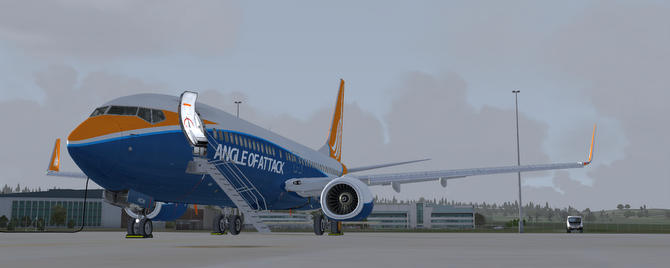 On the ramp at Canberra.
On the ramp at Canberra.
Parking and Shutdown
The VIP/RAAF parking at Canberra is off to the left of runway 17 via the second exit. You’ll need to land fairly short to make the turn-off. Park on the apron and shut down. And that’s it – welcome to Canberra – hope you enjoyed the exercise!
For extra practice – Repeat this exercise using the Canberra NDB Approach – there is no FMC approach pre-built for the CB NDB. Either build it in the FMC whilst on descent – or fly on raw data using the ADF pointer and the stopwatch! (As a short-cut for repeats, consider departing from Nowra).
Hope you enjoyed this one!
cheers
Jonathan Fyfe
All images by the author
This article was posted in 737NGX, Blog, Challenges, Maneuvers
Please note: We reserve the right to delete comments that are snarky, offensive, or off-topic. If in doubt, read the Comments Policy.

